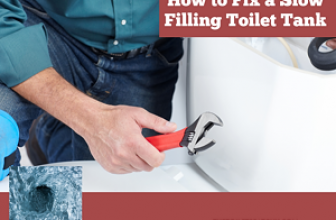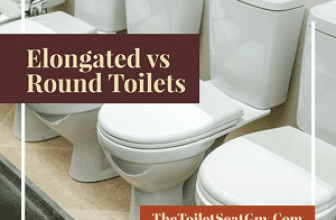 As people are becoming more interested in climate saving practices, composting toilets are becoming more and more common. If you are thinking of ways to reduce your carbon footprint, then a composting toilet could very well be an option for you. However, a composting toilet may not be for everyone. They certainly have a lot going for them but they also have a few downsides to consider. Lets have a look at some composting toilet pros and cons, to see if this eco-friendly toilet is right for you.
As people are becoming more interested in climate saving practices, composting toilets are becoming more and more common. If you are thinking of ways to reduce your carbon footprint, then a composting toilet could very well be an option for you. However, a composting toilet may not be for everyone. They certainly have a lot going for them but they also have a few downsides to consider. Lets have a look at some composting toilet pros and cons, to see if this eco-friendly toilet is right for you.
What is a Composting Toilet
A composting toilet is a dry toilet that does not use water for flushing. The liquid and solid waste that enters the composting toilet is separated and allowed to decompose and dry out.
Carbon additives, such as peat moss, are commonly added after each use. This practice helps decomposition and reduce the likelihood of unpleasant odors forming.
One of the main benefits of using a composting toilet is that unlike traditional toilets, it does not require a connection to a septic tank or sewer system. Composting toilets are commonly found in national parks, remote holiday cottages, ecotourism resorts and homes built in off-grid areas.
Pros Of Having A Composting Toilet
Composting Toilets Are Water Savers
If you are an environmentally conscious person, then a composting toilet can be a good option for you to help reduce your carbon footprint. A modern ultra low flow toilet will use 1.6 gallons per flush. A family of four using an ultra low flow toilet, will use an average of 11,000 gallons of water per year. As a compost toilet does not use any water, it is a real water saver.
Composting Toilets Are Space Savers And Versatile
Composting toilets do not need water to operate. Due to the fact that this type of toilet doesn’t need a water connection, it means it can be installed wherever you like. This is mainly advantageous to homes located in isolated places where there won’t be a sewage system. A compost toilet can be installed outdoors, if free space is an issue inside.
Composting Toilets Are Environmentally Friendly
Composting toilets provide natural fertilizers for plants and trees and also eliminates the need to build underground centralized sewage treatment plants. Regular toilets use a lot of water for flushing. Combine this with the treatment needed to get rid of so much human waste and you can see that composting toilets could be a good solution for these environmental issues.
Compositing Toilets Are Easy To Install
Compared to traditional toilets, composting toilets are easier to install. They do not need the connection of pipes and plumbing which also means that they will cost less. A compost toilet is a self-contained unit and has few installation requirements. On the other hand, a regular toilet has many requirements before installation can begin.
Cons Of Having A Composting Toilet
Composting Toilets Can Smell
A properly maintained composting toilet shouldn’t emit any nasty smells, however, improper maintenance can lead to odor issues. A composting toilet that efficiently separates the liquid from the solids, will quickly decompose, odor free. However, odors may appear if the solids and liquids are not sufficiently separated.
Guests May Not Want To Use Your Composting Toilet
If you have visitors to your home and they do not know you have a composting toilet, then expect a degree of shock. A composting toilet will be a novelty for most people and they may not be overly eager to try one out. Some will be fine with it, however, some may prefer to go home to use their own traditional toilet. A composting toilet is not for everyone.
Some Composting Toilets Need Electricity
Some composting toilets need a source of electricity to operate. Certain composting toilets have an electronic system that quickens the decomposition process. Also, if you have a ventilation fan, this will also use electricity. Many people use a compost toilet for water savings and for the benefits to the environment. However, the use of electricity might offset these benefits, especially the money you save on water. Non-electric composting toilets are available, however the decomposition process will be slower with these units.
Local Permits May Be Required
Composting toilets will not really be an option for most urban apartment buildings. Unfortunately, composting toilets will only work in specific living environments, and will require certain permits before they can be used in a specific area.
Conclusion
A composting toilet has many benefits. It is not only great for the environment, but is also great for spending less money on water. Unfortunately, the composting toilet is not perfect and it does have a few downsides. These include installation restrictions, potential odor issues and in some cases the need for electricity, which can offset the environmental and financial savings due to using no water.
Although, a composting toilet is not perfect, it certainly has its benefits and may be worth considering. If you have some more composting toilet pros and cons, then please share them in the comment section below.






